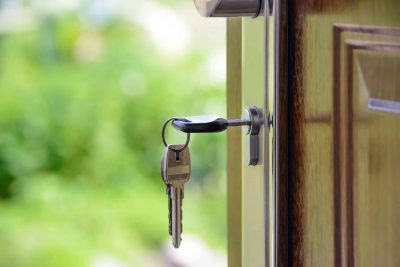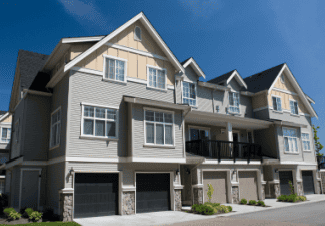How to Make Your Rental Property Safer in 2021
 As many Americans prepare to stay home as much as possible throughout the second wave of COVID-19, renters will want to know that their apartments are secure. Landlords and property owners can do their part to attract and retain excellent tenants by investing in safety and security features. But which components should you focus on? Here are a few tips that will help you safeguard your rental properties in 2021.
As many Americans prepare to stay home as much as possible throughout the second wave of COVID-19, renters will want to know that their apartments are secure. Landlords and property owners can do their part to attract and retain excellent tenants by investing in safety and security features. But which components should you focus on? Here are a few tips that will help you safeguard your rental properties in 2021.
Invest in Outdoor Lighting
Although boundary disputes make up 17% of all real estate issues between neighbors, a lack of exterior lighting can have a negative impact on the entire neighborhood. Adequate lighting is one of the simplest ways to prevent criminal activity and help your tenants feel safe. You can install a mix of fixed and motion-activated lighting to deter trespassers while providing enough visibility for residents. Keep in mind that you’ll want to eliminate any dark corners where criminals could potentially hide. If there’s no cover for them, they’ll rethink their strategy. As a bonus, having attractive and safety-oriented exterior lighting can be a real selling point for your property.
Ensure All Entries Are Secure
This might sound like a no-brainer, but there are property owners who think that a basic lock will do the trick. It’s important to equip front and back entrances with a deadbolt lock and a chain lock to prevent break-ins. Depending on the structure of the door, a peephole may be necessary. Intercom buzzer systems can also be great for multi-family properties. Don’t forget about window security, either. Windows should have working locks and should all be in working order; windows on the first floor may benefit from the addition of security bars. If tenants are evicted or move out, make sure that all keys are returned. You may also want to consider rekeying those locks just in case.
Consider Installing Security Cameras
Security cameras and alarm systems do represent a bit of a financial investment, but remember that tenants are often willing to pay more for added security. Security systems are becoming more affordable, as well, and they often aren’t very difficult to install. Make sure to go over how the system works with your tenants when they move in to avoid complications. Security cameras should be installed at the front and back entrances of the property, as well as any known trouble spots. Some property owners may install fake cameras or place fake security system decals on street windows. While this isn’t an ideal solution, as it won’t actually provide all the security your tenants expect, it can be effective in certain situations.
Keep Landscaping Maintained
U.S. forest land consists of 747 million acres — and if your property has a lot of trees and other landscaping, you’ll need to maintain it regularly. Keeping trees and bushes trimmed back can alleviate hazards like falling branches while eliminating places to hide for would-be criminals. It’s also important to remove yard debris and keep grass trimmed, as an unkempt property can often attract illegal activity. You may not beholden to code violations (which include having high weeds that are taller than 12 inches on a lawn), but you won’t want to deal with pest activity or lost property value due to a lack of maintenance. What’s more, you could even risk tenant injury (and a potential premises liability suit) if your landscaping gets out of hand.
Screen and Educate Tenants
Another aspect of keeping a rental property secure doesn’t involve a lot of physical labor on your part. But it does involve doing your homework and ensuring your tenants also exercise due diligence. It’s essential to screen prospective tenants before approving rental applications. While this won’t guarantee that you’ll never have a tenant issue, it can help determine whether an applicant might pose a safety risk to your property or to other tenants.
Once you’ve approved a tenant, you’ll need to provide them with some information about what they can do to protect themselves and their apartment. You can encourage them to obtain renter’s insurance and document all of their belongings in the unit, teach them how to monitor the installed security system, and encourage them to follow safety guidelines if they’re going to be away for any period of time. You may also want to include certain caveats in their lease pertaining to property upkeep and security. Let them know that you take their safety seriously and that they can always come to you with any concerns they might have. If they express a concern or inform you of an event that involves their safety or the safety of the property, respond promptly and resolve the matter as soon as possible. By taking the time to educate renters, they’ll prove to be excellent tenants who have a stake in keeping your property secure.
By keeping these tips in mind, you’ll be able to amp up security around your rental properties and keep your tenants satisfied. And ultimately, that will translate to long-term success for your business.
Source: landlordacademy.com















 Accessibility
Accessibility